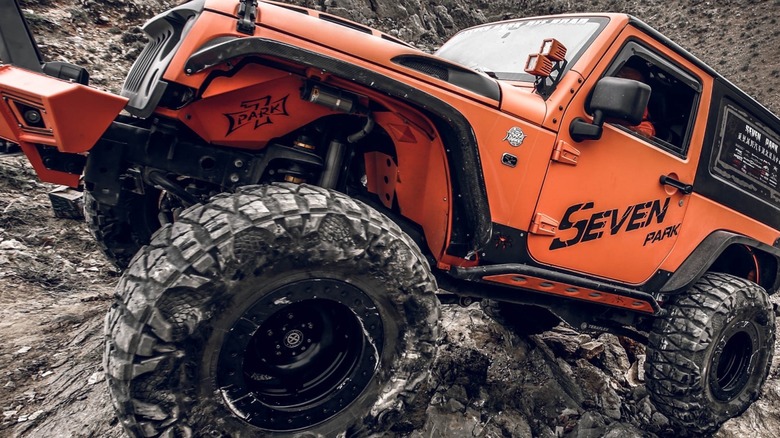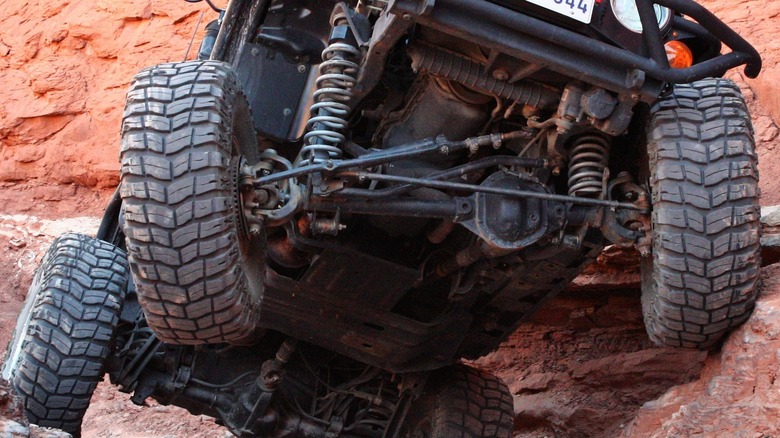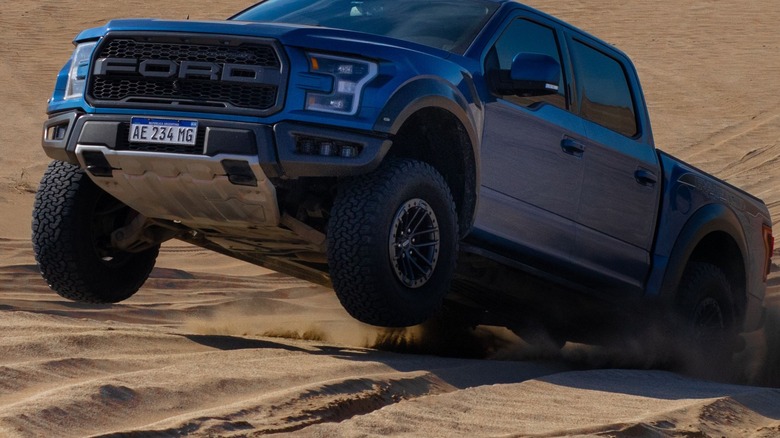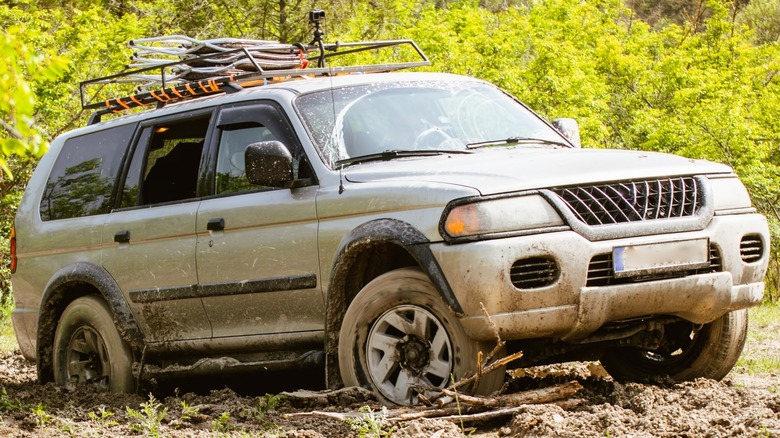Solid Axle Vs. IFS: Which Is Better For Off-Roading?
Whether independent front suspension (IFS) or a solid axle setup is better for off-roading depends on how you plan to use your off-road vehicle. A solid axle has advantages if your off-road adventures involve rock crawling or pulling heavy loads. On the other hand, IFS is better suited to high-speed off-roading and highway driving to and from the trails.
Early iterations of four-wheel-drive off-road vehicles featured solid front axle designs. Solid axles provide rugged simplicity that performs under the most challenging conditions. They also afford users a customizable platform allowing options that include suspension lifts, gear ratio changes, and differential locking mechanisms.
Many newer four-wheel and all-wheel drive vehicles utilize modern IFS technology. Where solid axles are simple and rugged, IFS provides superior ride quality and handling on and off-road. The most prominent downside is that a vehicle with IFS isn't as easy to customize as its solid axle kin.
What is a solid axle?
The exterior of a solid axle consists of a differential housing with axle tubes extending to the left and right. On a four-wheel drive solid front axle, the front driveshaft connects to the pinion gear at the rear of the differential housing via a yoke and universal or u-joints. The pinion gear meshes with the ring gear inside the differential and, along with other gears and components, drives the axles while allowing slippage for turning corners. The outer ends of the solid front axle connect to the wheel hubs through additional u-joints that enable the wheels to turn left and right.
The solid axle design maintains a straight line between the left and right wheels through the differential at all times. This solid design means that when one wheel climbs over an obstacle, it forces the other wheel downward. The downward force remains until the angle reaches the suspension travel limit. While many rear-wheel drive vehicles employ a solid rear axle, new four-wheel drive vehicles with solid axle front suspensions are becoming rare.
What is IFS?
Independent front suspension allows each front wheel to move up and down without affecting the other side. Four-wheel drive vehicles with IFS also use a differential mounted between the front axles. However, instead of solid axle shafts and u-joints, IFS axles feature constant velocity, or CV, joints at each end. The outer ends of IFS axles incorporate splined shafts that mesh with drive axles inside the differential at the inboard ends and wheel hubs at the other.
The popularity of IFS for four-wheel drive vehicles continues to grow due to its improved ride and handling characteristics. IFS is also gaining popularity in extreme situations such as desert racing thanks to its higher ground clearance, differential, and enhanced handling. In addition, modern off-road performance trucks like the Ford F-150 Raptor and Ram 1500 TRX feature IFS, boasting increased wheel travel and ground clearance. While IFS off-road vehicles sacrifice some user customization regarding ride height and gearing, the advantages outweigh the cons for many.
Is a solid axle or IFS better for off-roading?
If you want to transform an existing four-wheel drive vehicle into a dedicated off-roader capable of tackling the most challenging terrain, starting with a solid axle front suspension is likely your best option. Solid axle rigs are easier to modify with readily available aftermarket parts and are renowned for their durability.
However, IFS is a suitable option if you're building an off-road buggy with all-around capability in mind or looking to purchase a daily driver that will see occasional off-road duty. Vehicles with IFS provide a smoother ride on paved surfaces and washboard gravel forest roads. Another subtle difference is the improved fuel efficiency of the lighter-weight IFS system. While solid-axle designs traditionally offer more strength, newer IFS systems provide enough capability to conquer all but the most extreme situations.
Ultimately, the choice between solid axle front suspension and IFS boils down to how you plan to use your off-road rig, as each system has pros and cons.



